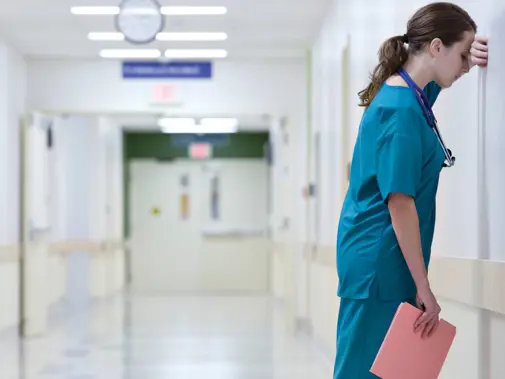When I was a relatively new consultant anaesthetist, my colleague took his own life out of the blue and devastated everybody who knew him.
He was a much loved, respected, and ebullient character who always had time for his colleagues, but when he needed help, we didn’t recognise his need, nor did he ask for help.
This had a great effect on me and cemented my interest in well-being and ways to help colleagues with emotional or mental distress. It taught me that we’re all vulnerable, and we need to learn to recognise it within ourselves and seek help.
Medicine is a rewarding yet challenging profession, and doctors tend to fall into the high-achieving, hardworking, and career orientated group. Some find it difficult to reconcile this with the ups and downs of everyday life. Work stressors, health problems and domestic responsibilities add to this pressure which can sometimes tip us over the edge.
I’ve learned through experience the importance of keeping a balance to cope with these ups and downs. It’s extremely important to seek assistance when the need arises to prevent a relatively small problem developing into a crisis. You need self-realisation and courage to do this, but prevention is always better than the cure which can take a long time.
I have been a BMA peer support doctor for more than 10 years and in the latter few years, supporter of doctors referred to the GMC. I love what I do and get great satisfaction from helping my fellow colleagues through a difficult patch. I also learn just as much from the cases I assist and receive regular training.
Our role as peer supporter doctors is to provide a safe place for doctors in difficulties to talk to another doctor who understands the vagaries of a medical career and system. You have a colleague who will listen with empathy, non-judgementally and confidentially. Sometimes, we may be able to signpost enquiries to bodies or organisations who can assist but our primary role is to provide emotional support.
I receive a range of calls from doctors. The most common being career/retirement issues, depression, bullying, stress, and clinical competence. One truism is that no matter how dark or bleak one’s view is of a particular situation, there is always light at the end of the tunnel.
There is nothing to lose and everything to gain.
So please get in touch – nothing is too big or too small to listen to. The BMA peer support service and BMA counselling service are available to all doctors and medical students regardless of their BMA membership, and the counselling service is also available to their families.
Michael Wee is an anaesthesia consultant and a BMA peer support doctor from Dorset

